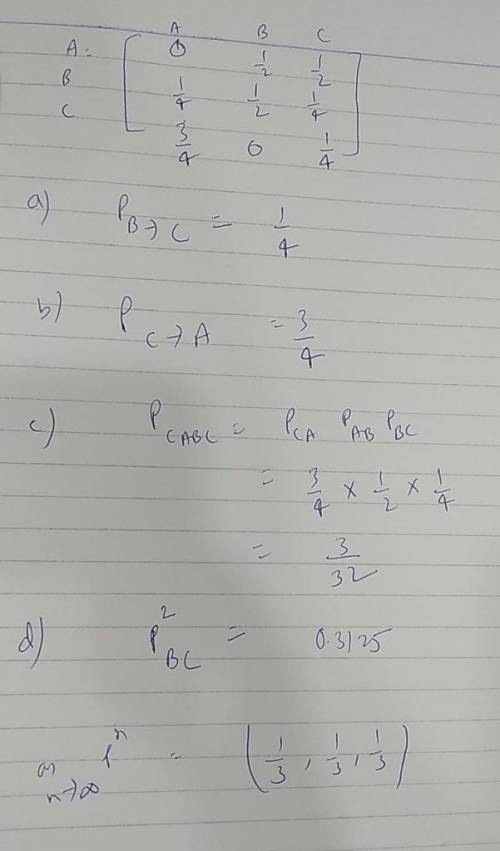
Mathematics, 18.03.2020 02:22 chriscook5176
Suppose a Markov chain has three states, A, B, and C From state A, the process changes randomly to a different state. From state B, the process is equally likely to stay as to change. If it changes, each other state is equally ikely From state C, the process is three times as likely to change as to stay, but it never changes to B P(B-+C)? (a) Carefully set up a transition diagram or transition matrix. What is Give exact answer.) (b) What is P(C- A) Give exact answer.) (c) Right now the process is at state C. What is the probability that the next three states will be ABC (in that order)? Give exact answer.) (d) Right now the process is at state B. What is the probability that in two moves, the process will be at state C? (Give exact answer.)

Answers: 3
Another question on Mathematics


Mathematics, 21.06.2019 21:40
The sum of the squares of two numbers is 8 . the product of the two numbers is 4. find the numbers.
Answers: 1

Mathematics, 22.06.2019 01:00
Which angle has the same measure as the dehedral angle formed by the orange face and the purple rectangle
Answers: 1

Mathematics, 22.06.2019 01:00
Arestaurant offers delivery for their pizzas. the total cost the customer pays is the price of the pizzas, plus a delivery fee. one customer pays $23 to have 2 pizzas delivered. another customer pays $59 for 6 pizzas. how many pizzas are delivered to a customer who pays $86?
Answers: 1
You know the right answer?
Suppose a Markov chain has three states, A, B, and C From state A, the process changes randomly to a...
Questions




Mathematics, 04.07.2019 05:40









Chemistry, 04.07.2019 05:40

English, 04.07.2019 05:40


English, 04.07.2019 05:40







